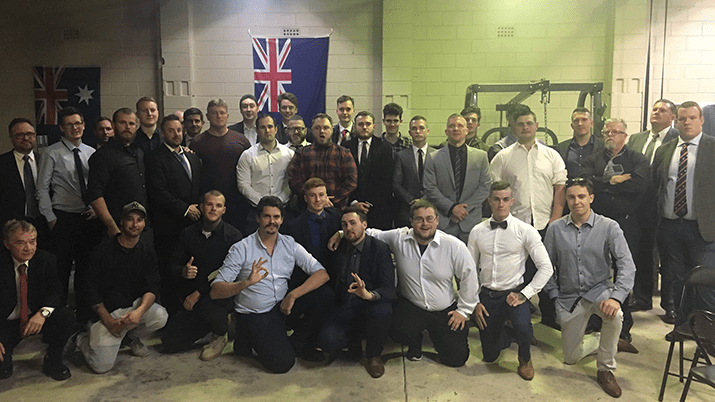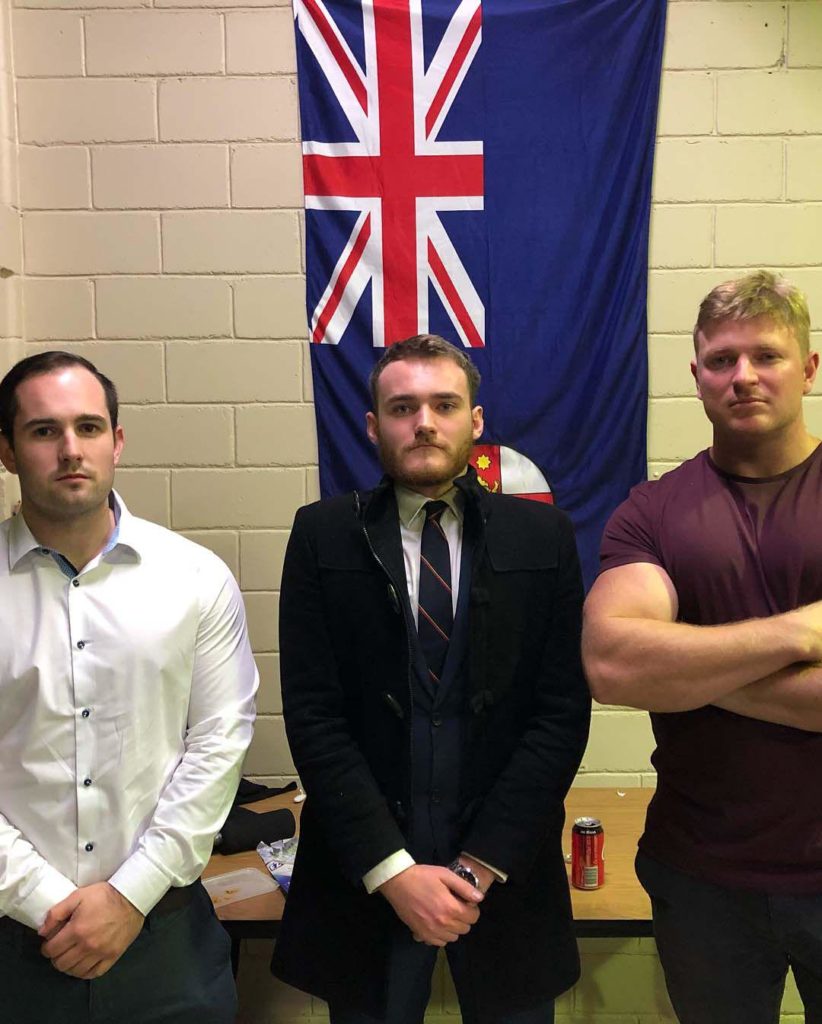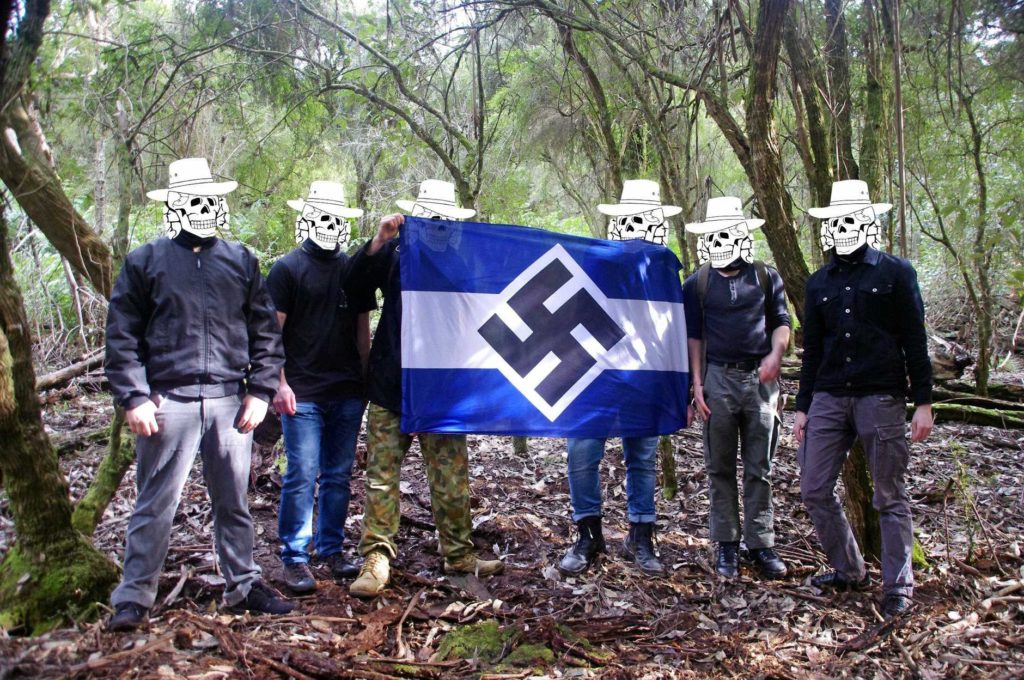Australia/Israel Review
Focus on the Australian far-right
Apr 2, 2020 | Naomi Levin

In March, an unemployed 21-year-old Australian man living with his parents in the regional NSW town of Nowra, was charged with terrorism offences. If found guilty, he faces life in prison.
This man came to police attention after allegedly posting extremist material online.
Police then allegedly found him stockpiling weapons, with plans to build a home-made explosive device, that could be used to blow up a local electricity sub-station.
Police described his views as antisemitic, anti-indigenous, anti-government and neo-Nazi.
While this arrest was alarming, it was also not unexpected. The threat posed by those holding extreme right-wing views has been growing in Australia. It is now second only to the terrorist threat posed by Sunni Islamists, such as ISIS.
In February this year, Australia’s new Director-General of the Australian Security Intelligence Organisation (ASIO) Mike Burgess, issued a warning loud and clear.
Burgess called the terror threat posed by far-right extremists “real” and “growing”. He added: “I am particularly concerned that we continue to see vulnerable and impressionable young people at risk from being ensnared in the streams of hate being spread across the internet by extremists of every ideology.”
Racism and identity-based intolerance is what motivates this group of people and their bigoted and xenophobic views are proliferating in the West, Burgess said.
Those on the far-right meet up regularly – both on- and off-line.
According to Burgess, when they get together, they salute Nazi flags, inspect weapons, learn combat skills and collaborate on ways to disseminate their hateful ideology.
The recent arrest indicates that Burgess probably did not go far enough in his comments – in this case, the weapons inspections he spoke of had morphed into plans to perpetrate violent crimes using those weapons.
The arrest also came on the first anniversary of the Christchurch mosque massacre, in which 51 Muslim worshippers in New Zealand were killed by Australian far-right extremist Brenton Tarrant. Tarrant was inspired by far-right organisations, but seemingly not an affiliate of any of them.
Nevertheless, Tarrant is now lionised in far-right online forums, as are his fellow perpetrators of recent synagogue shootings and other identity-based crimes.
Social media platforms – from the mainstream, such as Instagram and Twitter, to the more obscure, like Gab – host discussions that push the boundaries of free speech and inspire individuals to the extreme right cause.
The far-right uses online tools, some of them in a highly sophisticated way, some of it very rudimentary.
The most offensive and violent content is saved for private encrypted chats, the dark web and obscure chat sites. But a lot is easily found on YouTube, Instagram, Tik Tok and blogs
In researching this article, the Australia/Israel Review did not have to look hard to find anti-immigrant, antisemitic and Islamophobic rhetoric on Twitter, Facebook and Instagram. Antisemitic comments, which had not been removed by these mainstream platforms despite repeated pledges to do so, ranged from “The Zionists have infiltrated almost every government and set the rules” to “I hate Jews! Straight up! F***ing terrible people, all of them!”

Lads (from left) Tom Sewell, Thomas Hopper and Blair Cottrell
The Lads Society, one of Australia’s most prominent far-right groups, is on ASIO’s radar. Material by the Lads Society is openly published online and its founder, Tom Sewell, is active on Twitter. While Sewell is not particularly prolific on the platform, he does like to point out people’s Jewish identity in a derogatory fashion and refer derisively to “goys” (a Yiddish word meaning “non-Jews” that has been commandeered by those on the far-right).
While the Lads Society does not appear to be openly inciting or perpetrating terrorism, the Australia/Israel Review discovered a very disturbing article posted to its website called “Why National Socialism?”
In this article, the Lads Society explains its commitment to National Socialism – the ideology of the Nazis – because it represents “truth” and “natural order”. The article seeks a white Australia, is anti-government and contains thinly veiled incitement to future violence with statements like: “The only people that have anything to fear from National Socialism, are those who are actively weakening our race. In a world where everything is struggling to dominate and survive, not actively fighting for yourself, is fighting against yourself. If you are White and inactive in the struggle for racial survival, then you are against us.”
The Lads Society is an easily accessed gateway to even more extremist rhetoric and possible violence. But it is far from the most radical of extreme-right groups in Australia.
Antipodean Resistance came to public prominence by sticking vile and offensive stickers and posters in prominent locations – from university campuses to the door of the office of a federal Labor MP, Mike Kelly, in 2018.
Antipodean Resistance is loosely affiliated with two extreme-right British groups, National Action and Sonnenkrieg Division. Earlier this year, both these groups were registered as terrorist organisations by British authorities. Australia has not yet listed any far-right groups on its terrorism register.

Antipodean Resistance
While the Australian Coalition Government has emphasised its focus on preventing all terrorism – regardless of motivation – Labor has argued more could be done to prevent a local far-right-inspired terrorist incident in the future.
Labor’s Home Affairs Spokesperson Senator Kristina Kenneally asked ASIO’s Burgess why groups similar to National Action and Sonnenkrieg Division are not treated as terrorists in Australia.
He was vague in his response, telling Senator Kenneally: “Obviously, we constantly review proscription of certain groups. When we do that, we’re mindful of the intelligence that we have, the legal threshold for which we can do so, and the purpose that that would allow us to achieve by listing such organisations. Whilst it’s under constant review, I can’t go into full details of those particular matters.”
Senator Kenneally pressed further, asking whether Australian far-right groups are so sophisticated that they have worked out loopholes to avoid being banned.
Burgess said he was “paying great attention” to the issue, but he did not think these groups were evading the law.
As outlined above, Senator Kenneally is certainly correct in noting the sophistication of these extreme-right groups.
They have developed a parallel vocabulary to allow their offensive discussions to go largely undetected. To the layperson reading their comments, they are virtually indecipherable. But organisations, such as the US-based Anti-Defamation League, have put together a glossary of some of their most-used – and vilest – terms.
This vocabulary, which takes seemingly innocuous graphics, numbers and words and gives them alternate meanings, allows a lot of their comments to avoid being caught by automated filters looking for profane and offensive language. They also commandeer popular phrases and graphics and give them coded meanings, which allows them to easily identify themselves to fellow supporters.
Once understood, it is clear the movement is highly violent, glorifies murder and incites others to act in illegal ways.
Senator Keneally’s parliamentary colleague Tim Watts has also weighed in on the discussion, suggesting a more community-based approach similar to that being used to combat Islamist terrorism. In a speech to Parliament late in 2019, he called on the Morrison Government to consider providing funding for countering violent extremism programs that target “vulnerable and marginalised individuals in our community who may be beguiled by the messages of these white nationalists.”
This appears on point in light of the fact that the 21-year-old arrested in March was unemployed and came from Nowra, an area of regional NSW where the unemployment rate is double that of the rest of Australia.
As the case with the individual arrested in March wends its way through the legal system, we will no doubt find out more about his personal circumstances. However, it is clear that the terrorist threat from the far-right is not abating in Australia and unflagging vigilance is required.






